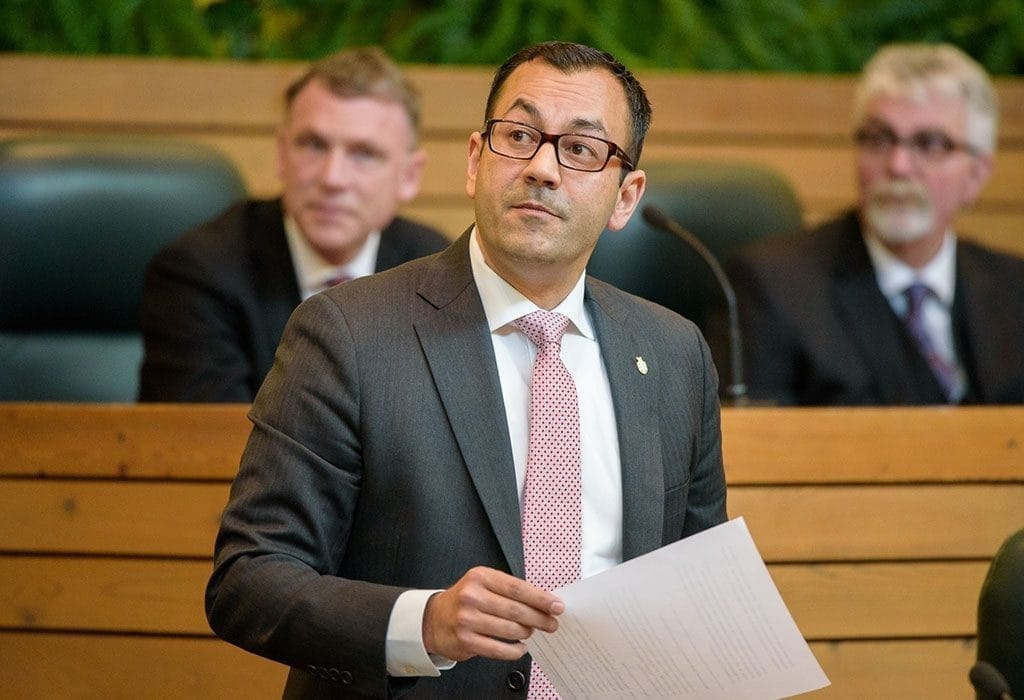Starlink Becomes Punching Bag Amid Global Backlash to Trump Tariffs
Canada’s westernmost territory halts use of Elon Musk’s satellite service, ends presence on X, and pulls Tesla rebates in protest.
Jericho Casper

WASHINGTON, April 7, 2025 – Ontario already tore up a $100 million Starlink deal. Now Yukon is following suit — freezing Elon Musk’s satellite service, cutting Tesla incentives, and logging off X as part of its retaliation against U.S. tariffs on Canada’s auto sector.
Yukon Premier Ranj Pillai (Liberal) announced the territory’s next phase of its response to sweeping U.S. auto tariffs on Thursday, following discussions with Prime Minister Mark Carney (Liberal) and fellow premiers about the Trump administration’s 25% levy on imported vehicles, which took effect April 3.
“These tariffs will directly impact Canadian auto workers and...leave Canadians – and Yukoners – uneasy about their futures,” Pillai said in a statement.
Effective immediately, the government of Yukon, Canada’s westernmost territory bordering Alaska, will:
- End rebates for Tesla products, including vehicles and Level 2 chargers, under the territory’s Good Energy Program;
- Review and potentially cancel government Starlink contracts, except where required for emergency response or business continuity; and,
- Terminate all activity on government-run X accounts, redirecting residents to Yukon.ca, Facebook, Bluesky, and local media outlets for updates.
The Yukon government’s move was part of a growing series of targeted protests against companies owned by Musk, whose role as a senior advisor in Donald Trump’s Department of Government Efficiency has made him a focal point for retaliation, despite Musk publicly opposing the tariffs and calling for a “zero-tariff” free trade zone between the U.S. and its allies on Saturday.
Ontario was the first of Canada’s provinces to act. Last month, Premier Doug Ford (Conservative) canceled a $100 million Starlink contract that would have connected 15,000 underserved locations across the province by June. Ford called the termination a necessary stand against U.S. economic aggression, stating: “We won’t award contracts to people who enable and encourage economic attacks on our province and our country.”
It’s not just Canada. In Italy, Defense Minister Guido Crosetto announced in March that negotiations over a $1.63 billion Starlink contract had stalled. The deal would have delivered satellite internet to the Italian military, but Crosetto expressed outrage over reports that the U.S. had threatened to shut down Starlink’s communications in Ukraine in February.
In the United Kingdom, a grassroots movement has begun as everyday users disconnect from Starlink. Some former subscribers told The Guardian they were “deeply uncomfortable” with Musk’s growing role in global politics.
In the United States, 58 of the 60 Democrats in California’s State Assembly announced in late March they were logging off X, the Musk-owned social media platform formerly known as Twitter. (Last month, Musk's xAI acquired X.)
Assembly Speaker Robert Rivas (D-Hollister) led the exodus, citing the platform’s failure to moderate hate speech, fake accounts, and disinformation.
“There are real risks with relying on a private company, owned by Elon Musk, as a channel for communications,” Rivas said in a statement.
Musk, one of Trump’s closest allies, and the world’s richest person, may likely be one of the greatest casualties of the tariffs: In just over 24 hours, between the opening bell on Thursday and the market closing on Friday, $31 billion was wiped from Musk’s net worth, driven primarily by a plunge in Tesla’s stock price, The Guardian reported.
So far this year, Musk’s estimated fortune has dropped by $130 billion — though he still holds a net worth of $302 billion.









Member discussion